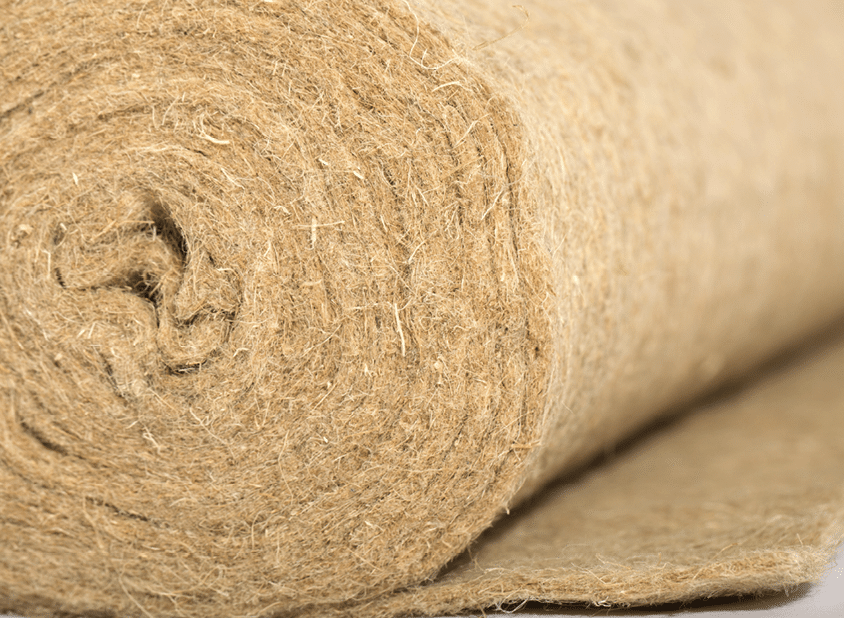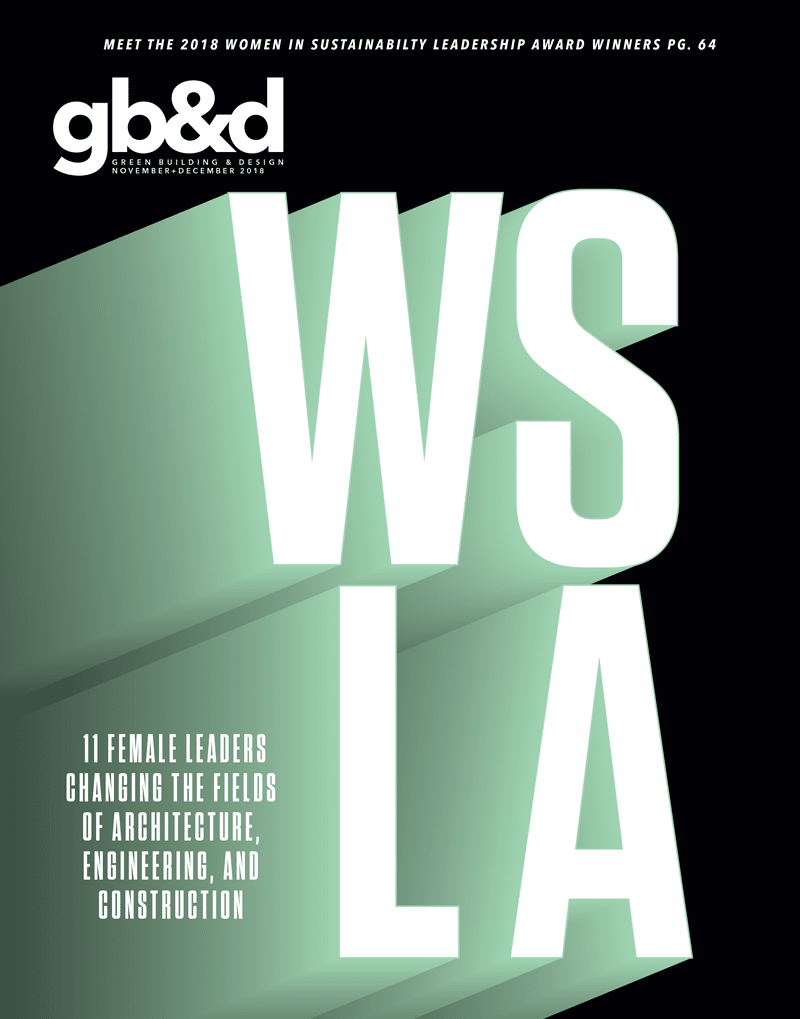
[Photo: Courtesy of Woven Earth]
Woven Earth sustains the terrain in a greener way with hemp mulch mats.
Woven Earth takes its tagline to heart—they aim to sustain the terrain naturally. Every part of the company’s mission, from product use to development, is designed to keep their environmental impact as low as possible. Made with all-natural, industrial hemp, Woven Earth’s mulch mats are highly absorbent and completely biodegradable.
Ideal for landscaping projects and light erosion control, their product is changing the game when it comes to sediment retention, soil quality, and vegetation growth.
We recently spoke with Chris Scruton, president of Woven Earth, about how their technology works and the growing need for erosion control.
How are your mulch mats made?
We use all-natural, industrial hemp grown in western Canada or western Europe using organic fertilizers—never chemical fertilizers, pesticides, or insecticides. The farmers cut the hemp stalks and leave them in the field. The weather, the dew, and the plant’s natural biology break down the hemp and separate the fibers naturally. This process is called field retting, or separating the hemp fiber from the outside of the plant. There are other ways to rett hemp, but they often use a lot of water or harsh chemicals.
What inspired you to create this product?
My favorite jogging route goes through the hillsides and I noticed the effects of runoff. Also, while researching the uses of industrial hemp, I realized that using it for erosion control is relatively prevalent in Europe. But because hemp is considered a narcotic here in the U.S. it’s out of sight, out of mind. We’re behind when it comes to this simple, natural solution.
Why use all-natural hemp?
Hemp absorbs water very well. Our mulch mats collect water and then slowly release it into the soil to reduce evaporation and keep the soil moist. Hemp is also hypoallergenic and very versatile. Our products are grown sustainably to maintain areas where the product was grown in the first place. It’s a cycle.
When is it best to use mulch mats?
Its ideal application would be a gentle slope where traditional mulching methods may not work. By that, I mean when gravity and weather would force bark mulch or pine straw down a slope. Because our product is in a blanket form, it’s easy to install and it’ll stay put when it’s anchored.
And it’s safe for wildlife to walk on, right?
Yes, that’s right. Other light erosion control products will use netting or what they call a scrim. That netting could potentially be dangerous to wildlife. Small animals could get caught in it. We have zero netting in our mats.
How do you install the mulch mats?
Our product comes in a roll; you just unroll it and make sure it’s anchored down. You can use our biodegradable stakes or anchor the mats down with stones. Some people lay colored mulch on top of the mat. That way you can get the look you want. Simply laying that thin layer of mulch on the mat will keep it in place. The mat is 5 millimeters thick, so it has some heft to it. That means it’s easy to install in windy conditions. With traditional mulch it’s challenging to get equipment up the hill. Our mulch mats are lightweight. All you need is manpower.
How can you tell how much product you’ll need?
It’s easy to figure out the amount you need. You just measure the area—length by width. With traditional mulch, you order a volume as opposed to an area, which can be confusing. It’s also challenging to get consistent thickness throughout with regular mulch whereas our product is of a consistent density and thickness.
How long do mulch mats usually last?
The mulch mats will generally last one to three years and can withstand light foot traffic.
How can you establish vegetation with the mulch mats?
The mats work the same way traditional mulches work. They block out sunlight and keep weeds from germinating. Because it’s all-natural, hemp has a fertilizer value. As the hemp breaks down over time the smaller fibers will still absorb moisture, which keeps the soil healthy.
Why is erosion control is important?
Topsoil, especially in landscaping and agriculture, is being washed away at an alarming rate due to construction runoff. You can see how plants just don’t grow as well at the bottom of the hill. That’s because the water is running off and taking the valuable topsoil nutrients with it. Farming chemicals also get washed into the wastewater system, or into neighboring fields. You can install our mats on the perimeter to collect the harsh chemicals. Hemp can naturally absorb those unwanted chemicals, too.


